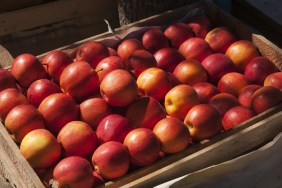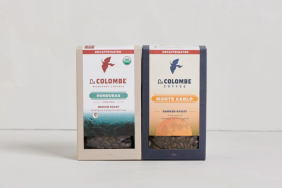“From a nutritional perspective, not only does it matter what food you eat — it also matters how you cook your food — if you cook it at all, that is,” says Dave Asprey, author of The Bulletproof Diet and the man behind the butter coffee trend. “This is because of the biochemistry of food. Think of your high school chemistry class; the way different foods, compounds and elements react to hot temperatures differs wildly from food to food, so some things actually become more nutritious by heating them, while others become less so and — in some cases — even actively unhealthy to consume.”
With that in mind, we asked Asprey to lay out some of the most important cooking guidelines that people frequently overlook and to highlight some foods we’re better off eating raw and some we’re better off cooking. Raw milk? Find out why you might want to start drinking it.
When You DO Cook, Here’s HOW to Cook
Not all cooking creates equally nutritious, healthy results. These basic guidelines apply for everything you want to gain maximum nutrients out of:
- Do not ever intentionally overcook, burn or char your food.
- Err on the side of cooking things longer, but at a lower temp.
- Do not microwave leftover food if you want it to retain its nutrients.
Don’t forget that what you are using to cook food in also matters a lot to the end quality of what you are putting in your body. Use high-quality, grass-fed butters, ghees, coconut or MCT oil and animal fats whenever possible.

Foods You Should Cook
- Cruciferous Vegetables: Kale, spinach, collards, chard, Brussels sprouts and other cruciferous veggies with high oxalic acid content should be cooked before eaten. The high amount of oxalates present in these raw greens makes them prevent absorption of other nutrients. Forget about that raw kale smoothie and eat cooked, drained kale instead.
- Saturated (Heat Stable) Fats: Make sure to cook only with saturated fats that are stable at high temperatures. This means they will be solid at room temperature. These include grass-fed butter, ghee, coconut oil, MCT oil and rendered grass-fed animal fats.
Foods You Should Eat Raw
- Raw Honey: This is a powerful sleep aid when taken alone before bed. Taking a small amount of honey by itself before bed will raise blood glucose while you sleep, putting you in a deeper sleep faster and giving the brain the energy it needs to recharge and cleanse itself while you rest.
- Raw Milk and Cheese: The Bulletproof Diet doesn’t recommend dairy at all except for grass-fed butter because of milk’s primary protein, casein, which is hard to digest, in addition to the pasteurization process. That said, some people can tolerate dairy much better when it is raw — see how you feel once you cut dairy out of your diet for two weeks, then play with adding grass-fed, organic, raw (unpasteurized) dairy back in and see if you tolerate it.
- Olive Oil: Don’t cook with it — use coconut oil or butter instead! Because it’s so prone to oxidation, olive oil should never be cooked. Choose high-quality brands that are packaged in dark glass to avoid oxidation. Purity of olive oil is extremely important, as many commercial brands contain canola and/or other Kryptonite oils. Use it on salads in moderation if it agrees with you.
For more on this, check out the new The Bulletproof Diet book or download the Bulletproof Diet Roadmap for free here.






